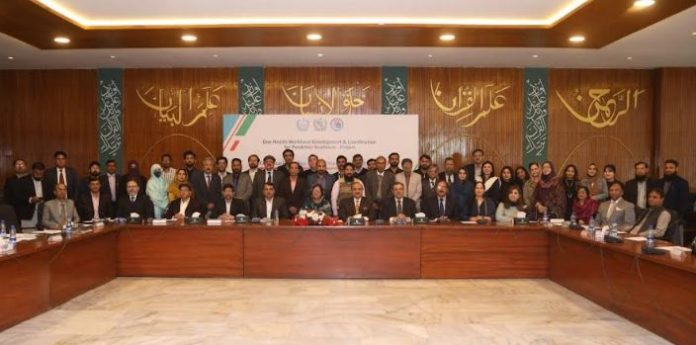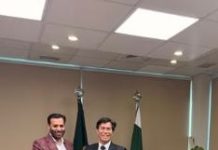ISLAMABAD, FEB 23: /DNA/ -For the first time in Pakistan, the health, animal health, and environmental departments have joined forces to prevent deadly diseases and epidemics through a coordinated national effort. The One Health Workforce Development Project took center stage, aiming to build a trained workforce of health, veterinary, and environmental experts to enhance Pakistan’s ability to combat zoonotic diseases, antimicrobial resistance, and climate-related health risks.
A consultative meeting on the project was held yesterday under the Health Services Academy (HSA), bringing together senior government officials, policymakers, international health organizations, and experts to discuss the challenges linked to human, animal, and environmental health. The primary objective of the One Health Workforce Development Project is to train a skilled workforce capable of addressing health threats related to zoonotic diseases, antimicrobial resistance, and climate change.
Dr. Malik Mukhtar Ahmed Bhurt, the Prime Minister’s Coordinator on Health, emphasized that the COVID-19 pandemic proved no single sector can tackle public health challenges alone. He stressed the importance of inter-sectoral collaboration between human, animal, and environmental health institutions. He further highlighted the need to strengthen disease surveillance systems, increase research efforts, and secure technical and financial support from development partners. “Our goal is not just to treat diseases but to establish a robust system that prevents outbreaks before they occur,” he stated.
During the inaugural session, Vice-Chancellor of the Health Services Academy (HSA), Prof. Dr. Shehzad Ali Khan, stated:
“The One Health approach is no longer an option but an essential necessity for national health security.”
Dr. Shabana Saleem, Director General Health, underscored the need to train a multidisciplinary workforce to implement an integrated One Health approach in tackling public health risks.
Dr. Muhammad Asif, Chief Health Officer, reaffirmed the government’s commitment to strengthening Pakistan’s public health system and improving disease surveillance mechanisms.
Special Secretary at the Ministry of Health, Mirza Nasiruddin Mashood Ahmed, elaborated on the government’s decision to incorporate the One Health approach into national policy. Meanwhile, Parliamentary Secretary Wajiha Qamar highlighted that the project aligns with Pakistan Vision 2025 and the Sustainable Development Goals (SDGs).
Dr. Tariq Mehmood Ali, National Coordinator, provided a detailed overview of the project, stressing that Pakistan must develop a robust workforce across human, veterinary, and environmental health sectors to combat future pandemics.
Representatives from the World Health Organization (WHO) and the Food and Agriculture Organization (FAO) endorsed the initiative. Dr. Muhammad Daud Altaf from WHO emphasized the need for early disease detection and epidemic preparedness, while FAO’s Pakistan Representative, Dr. Florence Roley, highlighted the importance of monitoring animal health.
At the conclusion of the meeting, experts and officials agreed on key measures, including:
Incorporating One Health principles into the National Health Policy.Launching new training programs for health, veterinary, and environmental specialists.
Strengthening disease surveillance and early warning systems.Promoting scientific research and evidence-based policymaking.Developing a trained workforce to prevent and control epidemics.
The One Health Workforce Development Project, with support from the government, academic institutions, and international organizations, is set to revolutionize Pakistan’s health sector. The meeting concluded with a commitment to continued collaboration, positioning Pakistan as a regional leader in health protection.

















